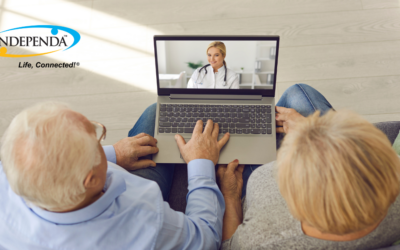Soaring temperatures have made national headlines in recent weeks, as large swaths of the country have been struck by record-breaking heat waves. Though people of all ages must take extra precautions at this time of year, older adults are particularly at risk.
Heat stroke is one of the gravest health concerns facing older adults at this time of year. An extreme variant of heat exhaustion – which is characterized by nausea, dizziness and cramping – heat stroke ultimately impairs the body's ability to moderate temperature and can result in organ failure and death.
As a care manager, the well-being of your care recipients is of the utmost importance. To better understand how to protect the older adults in your care at this time, it's important to understand their particular needs.
Older adults and dehydration
In 2011, registered nurse Phillip Russertt, who provides at-home eldercare on behalf of Metropolitan Jewish Health System in New York, spoke with ABC News about the perils of rising temperatures for older adults. Russertt explained that individuals past retirement age don't feel the heat to the same degree, and therefore may not realize the toll the hot weather is taking on them.
"[Older adults] tend to drink fewer fluids on a regular basis. They feel like they're fine but that doesn't mean they are not at risk," Russertt told the source.
In addition to this desensitization, some older adults may be at greater risk for dehydration because of the medications they consume, or pre-existing health conditions such as diabetes and heart disease.
City-dwellers more at risk
In 2003, mortality rates among older adults during a heat wave in Paris, France, skyrocketed 190 percent above the average rate from three years prior, according to a 2007 article from the Journal of Urban Health.
A 2012 study on the heat wave published by Environmental Health Perspectives revealed that mortality rates were notably higher within the city of Paris, where temperatures remained high throughout the night due to "heat islands," in contrast to its surrounding suburbs. This illustrates that older adults in urban areas – and the caregivers who look out for them – must be especially vigilant in staying hydrated and remaining cool.
How Independa can help
Independa's caregiving support technology allows care managers and their personnel to track residential and home-based care recipients via remote monitoring, thereby remaining abreast of any changes in behavior that could indicate a potential health concern. In addition, care managers can take advantage of Independa's medical reminders to maintain hydration schedules for older adults who may not drink enough fluids on their own. Care recipients, meanwhile, can utilize Independa's Angela to connect directly with their caregivers via video chat, Facebook or email if they have any concerns.
For more information about Independa's senior living community and home care technology, contact us through our online form.




